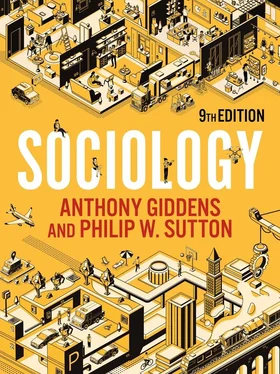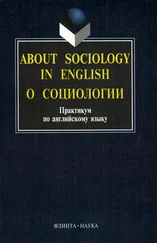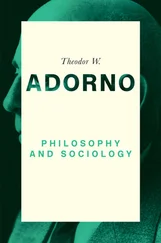On the face of it, this seems like an episode of a naturally occurring disease in animals, unrelated to social processes. However, the transmission and spread of BSE was the product of decisions taken within the animal feed production system. The previous assumption that BSE would not cross the species barrier was shown to be wrong. BSE-infected beef did lead to vCJD in humans. Treating cattle as commercial products and denying their herbivorous nature by feeding them dead animals produced an unexpected outcome that no one had forecast.
A critical realist approach would suggest that, to understand this event properly, we need to know what kind of creatures cows are: what are their natural capacities? We also need to understand human beings to know why the disease had such devastating effects on people. What happens when infected foodstuffs find their way into the human body? We also need to know how the food production system operates and what political and economic decisions were made that allowed dead animals to be fed to others. And we need culturally specific knowledge – just why do so many people eat so much beef in the UK?
How would social constructionists investigate the BSE epidemic and its consequences, as outlined above? What would be the focus of a constructionist investigation?
The environmental issue of global warming – a form of climate change – is the clearest example of a genuinely global environmental problem. Its effects will have an impact on every society on the planet, albeit to varying degrees. To understand it, we have to see ‘the environment’ in its widest sense – the Earth as a whole – as the atmosphere shrouds the entire planet rather than one region. The problem of global warming cannot be understood without modern science, and sociologists need to engage with debates on the science of climate change if they want to say anything useful about the matter.
Global warming is regarded by many people as the most serious environmental challenge. If scientific forecasts are correct, then it has the potential to alter irreversibly the functioning of the Earth’s climate, producing a series of devastating environmental consequences. Global warming refers to the gradual rise in the Earth’s average surface temperature resulting from changes in the chemical composition of the atmosphere. The current scientific consensus is that this is caused in large measure by industrial processes which produce gases, notably CO 2, that have built up in the atmosphere.
Global warming is closely related to the concept of the greenhouse effect – the buildup of heat-trapping gases within the Earth’s atmosphere. The principle is a simple one. Energy from the sun passes through the atmosphere and heats the Earth’s surface. Although most of the solar radiation is absorbed directly, some of it is reflected back. The greenhouse gases act as a barrier to this outgoing energy, trapping heat within the atmosphere much like the glass panels of a greenhouse. A natural greenhouse effect keeps the Earth at a reasonably comfortable surface temperature – about 15.5°C. If it were not for the role of greenhouse gases in retaining heat, the Earth would be a very different place, with an average temperature of −17°C.
When concentrations of atmospheric greenhouse gases rise, the greenhouse effect is intensified and much warmer temperatures are produced. Since the start of industrialization, the concentration of greenhouse gases has risen significantly. Concentrations of carbon dioxide (CO 2, the main greenhouse gas) have increased by around 40 per cent since 1750 – the onset of modern industrialization; methane has increased by 150 per cent and nitrous oxide by 20 per cent (IPCC 2015: 44) (see ‘Global society’ 5.1).
Most climate scientists agree that the increase in carbon dioxide in the atmosphere can be attributed to the burning of fossil fuels and other human activities, such as industrial production, large-scale agriculture, deforestation, mining and landfill, and vehicle emissions. The overall impact of these industrial processes is referred to as anthropogenic (human-created) climate change. The Industrial Revolution of the eighteenth and nineteenth centuries and the spread of industrialization around the globe have produced major, world-historical change.
The Fifth Assessment of the Intergovernmental Panel on Climate Change (IPCC 2015) reports that, on the basis of analyses comparing actual observations with a model forecast based only on natural climate changes and a second model based on natural changes plus anthropogenic climate change, it is extremely likely that the increase in observed temperatures since the mid-twentieth century is due to human activity. In the cautious scientific language of the IPCC, this means a probability of over 95 per cent. This is a much stronger conclusion than that arrived at in the Third and Fourth Assessment Reports of 2001 and 2007 respectively. Figure 5.1 shows the rising trend in surface temperature between 1910 and 2010 compared to the IPCC models.
How convinced are you by the scientific evidence for anthropogenic global warming presented above? Carry out a straw poll of your friends. Is there a collective view? Have any of them changed their behaviour on the basis of what they know about climate change?
Global society 5.1 Greenhouse gases
Some greenhouse gases, such as carbon dioxide, occur naturally and are emitted to the atmosphere through natural processes and human activities. Others (e.g., fluorinated gases) are created and emitted solely through human activities. The principal greenhouse gases that enter the atmosphere because of human activities are:
Carbon dioxide (CO2): Carbon dioxide enters the atmosphere through the burning of fossil fuels (oil, natural gas and coal), solid waste, trees and wood products, and as a result of other chemical reactions (e.g., manufacture of cement). It is also removed from the atmosphere (or ‘sequestered’) when it is absorbed by plants as part of the biological carbon cycle.
Methane (CH4): Methane is emitted during the production and transport of coal, natural gas and oil. Methane emissions also result from livestock and other agricultural practices and through the decay of organic waste in municipal solid waste landfills.
Nitrous oxide (N2O): Nitrous oxide is emitted during agricultural and industrial activities, as well as during combustion of fossil fuels and solid waste.
Fluorinated gases: Hydrofluorocarbons, perfluorocarbons and sulfur hexafluoride are synthetic, powerful greenhouse gases that are emitted from a variety of industrial processes. Fluorinated gases are sometimes used as substitutes for ozone-depleting substances (i.e., CFCs, HCFCs and halons). These gases are typically emitted in smaller quantities but, because they are potent greenhouse gases, are sometimes referred to as High Global Warming Potential gases (‘High GWP gases’).
Source : US Environmental Protection Agency: www.epa.gov/ghgemissions/overview-greenhouse-gases.
The potential consequences of global warming
The consequences of global warming will be unevenly experienced, with devastating outcomes for some regions and countries but not for all. The IPCC’s Fourth Assessment Report (2007: 50–2) suggested a range of social impacts, some of the more significant of which are listed by region below.
1 Some 75 to 250 million people across Africa will experience greater stress on water supplies, and agricultural yields may fall by as much as 50 per cent, severely compromising access to adequate levels of food, increasing levels of undernourishment. The IPCC also forecast an increase in arid land by 2080 of between 5 and 8 per cent in Africa and that rising sea levels will affect low-lying coastal areas with large populations.
Читать дальше












